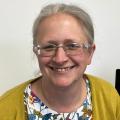
PEOPLE in Inverclyde run a greater risk of dying at a younger age from causes which could have been prevented.
New figures show that the district, which is listed as the second poorest in Scotland, is among the places with the highest rates of avoidable deaths.
Inverclyde is fourth in a table of deaths under the age of 75 which could have been avoided by 'timely and effective healthcare' or 'public health interventions'.
Local politicians and health campaigners hope that actions being put in place - including a new health centre, better education and changes to alcohol and drug services will make an impact.
Councillor Jim Clocherty, who represents Inverclyde on the health board, said: "It is sad but it is not surprising.
"I think we are aware of the links with poverty and health.
"We know there is problem, particularly in relation to young men.
"That is why we are bringing alcohol and drugs services together.
"We also believe the health centre will make a difference.
"It is important to local services as close as possible to the community."
Despite all the health challenges that the area faces, Cllr Clocherty is optimistic that the tide can be turned.
He said: "We have a great health and social care partnership which is delivering.
"I think we will see changes in the future."
In Inverclyde 347 deaths per 100,000 are classed as avoidable.
In a three year period there were 299 in 2014, 305 in 2015 and then 275 in 2016, according to the Office of National Statistics and the National Records of Scotland.
High levels of heart disease, cancer and other illnesses in Inverclyde are well documented along with a higher than average number of smokers and other factors that are recognised as leading to lower life expectancy and health inequalities.
The Tele also revealed earlier this month that drug deaths in the area have doubled in the last ten years.
Health and social care convenor Robert Moran believes education is the key and praised initiatives introduced in schools like the daily mile.
He added: "It is about educating people.
"But it isn't easy when you are a family on a low income.
"We have to try and find ways to help people."
Mr Moran says people also have to take some personal responsibilty.
He has fronted men's health campaigns after he battled bowel cancer.
He said: "People have to take tests and go to the doctors because if they wait the outcomes are much worse."



Comments: Our rules
We want our comments to be a lively and valuable part of our community - a place where readers can debate and engage with the most important local issues. The ability to comment on our stories is a privilege, not a right, however, and that privilege may be withdrawn if it is abused or misused.
Please report any comments that break our rules.
Read the rules hereLast Updated:
Report this comment Cancel